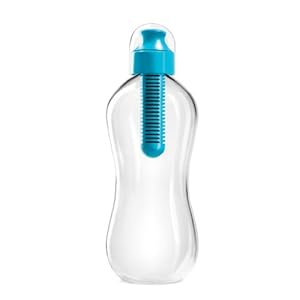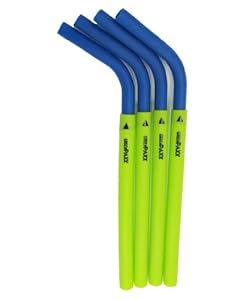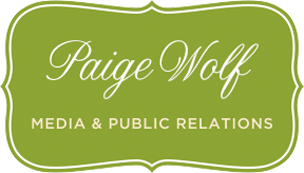Here are the links to the products I included on my 6ABC Action News segment on reusable items that save money while helping the planet. A few didn’t make the final on-air cut but I am including all of my favorites here:
Two Green Laundry Products That Will Save You Loads of Money:
EcoNuts
What: Certified organic berries that naturally make soap and can be reused for up to ten washes
How it helps planet: If you purchase a large box of Eco Nuts, it saves 11.25 plastic detergent bottles.
How it saves $: Using “Eco Nuts” for your laundry can save you up to 1/3 the price of regular detergent and they are also a natural fabric softener. If you purchase a large box of Eco Nuts, it saves at least $32.40 in detergent alone.
Where to Buy: www.econutssoap.com

Felted Wool Dryer Balls
What: Made in Philly, these felted wool dryer balls reduce static and wrinkles and cut down on dryer time.
How it helps planet: In addition to the dryer energy savings, conventional dryer sheets contain artificial fragrance, animal tallow, and other potentially toxic ingredients
How it saves $: Dryer sheets cost between 5 and 20 cents a piece. For people like me who do lots of laundry, that’s about $40 a year. Dryer balls are about $5 a piece and you’ll never buy a dryer sheet again.
Where to Buy: www.bogberrydryerballs.com
In the Kitchen:

Sodastream
What: This is one of my husband’s favorite products. Sodastream’s home soda machines (starting at $80) allow you to make your own soda and seltzer. You can also make your own DIY sparkling seltzers and herbal blends.
How it helps planet: One SodaStream carbonator makes up to 100 Liters of soda which is equivalent to 310 aluminum cans.
How it saves $: After your initial purchase of a home soda maker package, you’ll enjoy seltzer and sparkling water for just $.25 per liter and flavored sodas for about $.25 per can.
Where to Buy: www.sodastreamusa.com, Amazon, or local retailers

Wean Green Glassware
What: These food containers are 5 x stronger than a drinking glass.
How it helps planet: Plastic manufacturing uses petroleum products, which causes pollution in the production, is unhealthy for whatever food or beverage you put in it; and usually ends up in landfills
How it saves $: It’s estimated that switching to reusable lunch products can save you up to $300 per year per child.
Where to Buy:
www.weangreen.com, Amazon, or Whole Foods

Squooshi reusable food pouches
What: reusable food pouches make it convenient and simple for parents to give their children wholesome, home made food on-the-go.
How it helps planet: Plus over 6 billion single use food pouches end up in landfills every year and that number is expected to top 15 billion by 2016!
How it saves $: Pre-filled baby and toddler food pouches cost between $1.50 and $2.25 each. Four-pack of reusable cost $17 and can be used infinitely.
Where to Buy: Squooshi.com or Amazon

Water Bobble
What: I am a big proponent of tap water versus bottled and at home use a filtered pitcher. But I often fill up on the go at water fountains and sinks so I love the new filtered water bottles on the market. The Water Bobble ($9.99) is a reusable, BPA-free water bottle with a built in filter.
How it helps planet: Each filter is equivalent to 300 single-serve water bottles.
How it Saves Money: Americans currently spend over $15 billion a year on bottled water. 300 single serve water bottles would cost you about $600.
Where to Buy: waterbobble.com or Amazon

Reusable Keurig Coffee Filters
What: Use your own coffee with single serve K-cup filters to make the perfect up using the same Keurig technology you love.
How it helps planet: Single plastic K-Cups are not very recyclable. The no-cleaning- necessary Java Jig ($14.99) uses biodegradable filters and the washable “My K-Cup” ($17.99) uses no disposable filters.
How it saves $: A single K-cup costs .70-.90 cents while a cup made with your own grounds is .20-.30 cents.
Where to Buy: qcidirect.com , keurig.com or Amazon

FreshPaper by Fenugreen
What: Infused only with organic spices that keep fruits & vegetables fresh for 2 – 4x longer, naturally. FreshPaper sheet can simply be dropped into fridge drawers, cartons, bags and containers filled with fruits & vegetables.
How it helps planet: Keeps expired produce out of landfills
How it saves $: One small (5″ x 5″) FreshPaper saves families up to $40 each month, and is also recyclable, biodegradable and compostable.
Where to Buy: http://store.fenugreen.com/ or Whole Foods

GreenPaxx Reusable Straws
What: The first two-piece reusable straw
How it helps the planet: Keep hundreds of disposable straws out of our landfills.
How it saves $: At about $3.75 for a box of disposable plastic straws, Cool Straws at $10.95 would pay for themselves with just 3 boxes of disposables replaced. One box of Cool Straws will pay for itself in less than six months and for each person who buys them.
Where to Buy: http://greenpaxx.com

The Original Spaghetti Scrub by Goodbye Detergent!
What: Made from peach pits and corn cobs, these scrubbers have natural abrasives and eliminate the need for soap.
How it helps planet: Made from food waste, reusable, and eliminate need for soap or detergent.
How it saves $: Buy and use far less dish soap and replace your kitchen sponges far less often.
Where to Buy: $10.99 at Amazon and local retailers
Around the Home
VZWraps fabric gift bags:
What: Made in Philly, these fabric gift bags with built-in ties are super easy to use and make any gift look beautiful in seconds
How it helps planet: According to the Clean Air Council, an additional 5 million tons of waste is generated in the U.S. during the Christmas holidays and a substantial portion of that is wrapping paper and shopping bags.
How it saves $: If you use VZWraps within your family for birthdays and holidays you will certainly save money. Some families keep a special birthday or Santa bag for each child, or just a general birthday bag that gets used all the time.
Where to Buy: www.vzwraps.com. Use code DCPW10 for 10% off your entire order.

Cloth Diapers
What: I didn’t start out cloth diapering with my first because I was afraid it would be too hard and too messy. But after about a year I decided to try it out and found that especially with a diaper service it is really no harder than using disposables.
How it helps planet: In the U.S. we throw away 20 billion disposable diapers a year, enough to circle the globe 90 times.
How it saves $: Lifetime savings estimates: Generic disposables will cost you over $1500 in 2.5 years with eco-friendly disposables costing $2245. The GroVia hybrid system will only cost $430 and the water and energy used to clean them shouldn’t be more than $100 a year.
Where to Buy: http://www.gro-via.com/
Disclosure: These companies gave me a sample for review. Regardless, my opinions are honest. See my full disclosure here.















